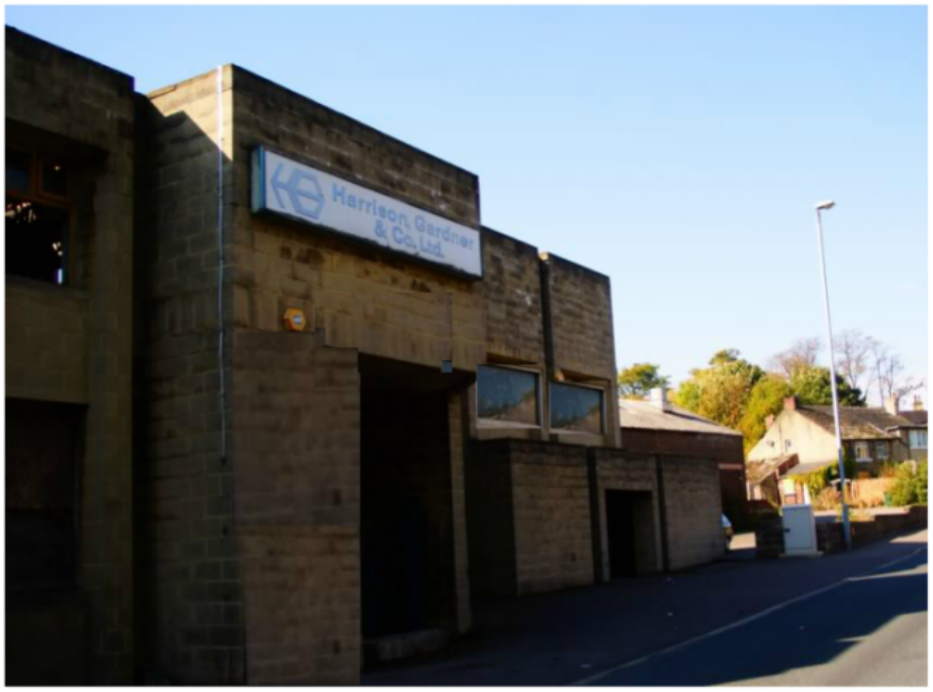- Home
- Site Index
- About Me
-
My Books
- Book List & Themes
- Strictly for Adults Novels >
-
Tales from Portlaw
>
- No Need to Look for Love
- 'The Love Quartet' >
-
The Priest's Calling Card
>
- Chapter One - The Irish Custom
- Chapter Two - Patrick Duffy's Family Background
- Chapter Three - Patrick Duffy Junior's Vocation to Priesthood
- Chapter Four - The first years of the priesthood
- Chapter Five - Father Patrick Duffy in Seattle
- Chapter Six - Father Patrick Duffy, Portlaw Priest
- Chapter Seven - Patrick Duffy Priest Power
- Chapter Eight - Patrick Duffy Groundless Gossip
- Chapter Nine - Monsignor Duffy of Portlaw
- Chapter Ten - The Portlaw Inheritance of Patrick Duffy
- Bigger and Better >
- The Oldest Woman in the World >
-
Sean and Sarah
>
- Chapter 1 - 'Return of the Prodigal Son'
- Chapter 2 - 'The early years of sweet innocence in Portlaw'
- Chapter 3 - 'The Separation'
- Chapter 4 - 'Separation and Betrayal'
- Chapter 5 - 'Portlaw to Manchester'
- Chapter 6 - 'Salford Choices'
- Chapter 7 - 'Life inside Prison'
- Chapter 8 - 'The Aylesbury Pilgrimage'
- Chapter 9 - Sean's interest in stone masonary'
- Chapter 10 - 'Sean's and Tony's Partnership'
- Chapter 11 - 'Return of the Prodigal Son'
- The Alternative Christmas Party >
-
The Life of Liam Lafferty
>
- Chapter One: ' Liam Lafferty is born'
- Chapter Two : 'The Baptism of Liam Lafferty'
- Chapter Three: 'The early years of Liam Lafferty'
- Chapter Four : Early Manhood
- Chapter Five : Ned's Secret Past
- Chapter Six : Courtship and Marriage
- Chapter Seven : Liam and Trish marry
- Chapter Eight : Farley meets Ned
- Chapter Nine : 'Ned comes clean to Farley'
- Chapter Ten : Tragedy hits the family
- Chapter Eleven : The future is brighter
-
The life and times of Joe Walsh
>
- Chapter One : 'The marriage of Margaret Mawd and Thomas Walsh’
- Chapter Two 'The birth of Joe Walsh'
- Chapter Three 'Marriage breakup and betrayal'
- Chapter Four: ' The Walsh family breakup'
- Chapter Five : ' Liverpool Lodgings'
- Chapter Six: ' Settled times are established and tested'
- Chapter Seven : 'Haworth is heaven is a place on earth'
- Chapter Eight: 'Coming out'
- Chapter Nine: Portlaw revenge
- Chapter Ten: ' The murder trial of Paddy Groggy'
- Chapter Eleven: 'New beginnings'
-
The Woman Who Hated Christmas
>
- Chapter One: 'The Christmas Enigma'
- Chapter Two: ' The Breakup of Beth's Family''
- Chapter Three: From Teenager to Adulthood.'
- Chapter Four: 'The Mills of West Yorkshire.'
- Chapter Five: 'Harrison Garner Showdown.'
- Chapter Six : 'The Christmas Dance'
- Chapter Seven : 'The ballot for Shop Steward.'
- Chapter Eight: ' Leaving the Mill'
- Chapter Ten: ' Beth buries her Ghosts'
- Chapter Eleven: Beth and Dermot start off married life in Galway.
- Chapter Twelve: The Twin Tragedy of Christmas, 1992.'
- Chapter Thirteen: 'The Christmas star returns'
- Chapter Fourteen: ' Beth's future in Portlaw'
-
The Last Dance
>
- Chapter One - ‘Nancy Swales becomes the Widow Swales’
- Chapter Two ‘The secret night life of Widow Swales’
- Chapter Three ‘Meeting Richard again’
- Chapter Four ‘Clancy’s Ballroom: March 1961’
- Chapter Five ‘The All Ireland Dancing Rounds’
- Chapter Six ‘James Mountford’
- Chapter Seven ‘The All Ireland Ballroom Latin American Dance Final.’
- Chapter Eight ‘The Final Arrives’
- Chapter Nine: 'Beth in Manchester.'
- 'Two Sisters' >
- Fourteen Days >
-
‘The Postman Always Knocks Twice’
>
- Author's Foreword
- Contents
- Chapter One
- Chapter Two
- Chapter Three
- Chapter Four
- Chapter Five
- Chapter Six
- Chapter Seven
- Chapter Eight
- Chapter Nine
- Chapter Ten
- Chapter Eleven
- Chapter Twelve
- Chapter Thirteen
- Chapter Fourteen
- Chapter Fifteen
- Chapter Sixteen
- Chapter Seventeen
- Chapter Eighteen
- Chapter Nineteen
- Chapter Twenty
- Chapter Twenty-One
- Chapter Twenty-Two
-
Celebrity Contacts
-
Thoughts and Musings
- Bereavement >
- Nature >
-
Bill's Personal Development
>
- What I'd like to be remembered for
- Second Chances
- Roots
- Holidays of Old
- Memorable Moments of Mine
- Cleckheaton Consecration
- Canadian Loves
- Mum's Wisdom
- 'Early life at my Grandparents'
- Family Holidays
- 'Mother /Child Bond'
- Childhood Pain
- The Death of Lady
- 'Soldiering On'
- 'Romantic Holidays'
- 'On the roof'
- Always wear clean shoes
- 'Family Tree'
- The importance of poise
- 'Growing up with grandparents'
- Love & Romance >
- Christian Thoughts, Acts and Words >
- My Wedding
- My Funeral
- Audio Downloads
- My Singing Videos
- Bill's Blog
- Contact Me
Chapter Four:
'The Mills of West Yorkshire'
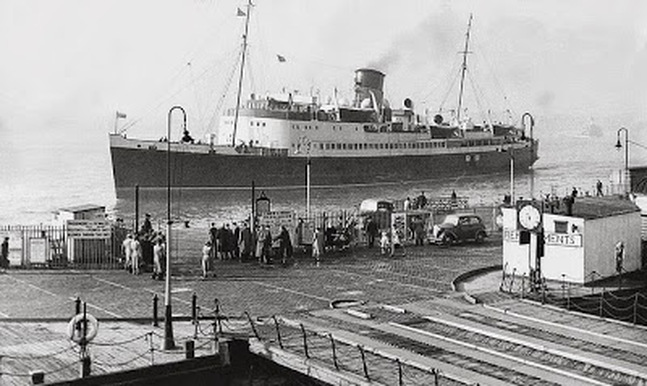
During Beth's twenty first year of life, she decided to make a completely new start for herself and like so many people from the Emerald Isle who sought a fresh shake of the dice in pastures greener, Beth boarded the boat out of Dublin and headed across the Irish Sea towards England where she was to remain until the age of fifty.

Although she was undoubtedly a beautiful woman and could have had any man she ever wanted, simply for the asking, Beth had grown up too independent in her ways ever to consider 'selling out' the kind of freedom she had fought so hard to achieve. She would have viewed the trading of her good looks and sexual appeal for power, wealth or position as representing no more than the most opportunistic brand of prostitution that was available to her.
Ever since she'd left the Care of the Social Services Department, Beth determined that never again would she find herself dependent upon any anyone or anything. She knew that only through the breaking of such strangleholds upon the dreams of tangible possessions and earthly wealth would she be able to remain her own person and retain a level of respect that would satisfy her. As for religion, she found herself no longer able to believe in any God who would allow such abuse and heartache to be inflicted upon innocent children or who could sanction the death of a mother, brother and father within the very same week.

Her years in Care and the abuse Beth had seen and experienced left an indelible mark on her. Indeed, not to have done so and to have left her untarnished would have been to minimise the grave impact it had upon her at the time. Such past experience had determined most of the attitudes which now governed her current behaviour, beliefs and inner thoughts. There were hardly nights when she didn't fall asleep crying over the whereabouts of her sisters, the tragic loss of her parents and the rape by Martin Meggins. She invariably felt tortured by such thoughts; stung and pierced with the barb-wired activity of the depraved mind of Meggins, her arch defiler. By penetrating her young body against her will, he had pierced her with a hurt that was always to haunt her.

Most nights before the closure of her conscious mind, Beth would go off to sleep thinking about her two sisters; where were they now and how they were faring? Did they ever think about her or would they try to seek her out when they attained their years of maturity?
With regard to thoughts of her dearly deceased mother and father, Beth tried not too dwell on them too often as thoughts of their demise and end-of-life struggle was still too painful for her to bear in its recall. When she couldn't help but think of her parents, she would think upon the one romantic painting her father had bought her mother during their courtship days of a man and woman leant out of the windows of their respective cars as they kissed passionately before passing each other. She also thought about the saying of her father when he used to say, 'Never leave the house or depart from your loved ones without kissing them goodbye, as none of us ever know when we shall next meet if fate takes a wrong turning.'
With regard to thoughts of her dearly deceased mother and father, Beth tried not too dwell on them too often as thoughts of their demise and end-of-life struggle was still too painful for her to bear in its recall. When she couldn't help but think of her parents, she would think upon the one romantic painting her father had bought her mother during their courtship days of a man and woman leant out of the windows of their respective cars as they kissed passionately before passing each other. She also thought about the saying of her father when he used to say, 'Never leave the house or depart from your loved ones without kissing them goodbye, as none of us ever know when we shall next meet if fate takes a wrong turning.'
XXXXX
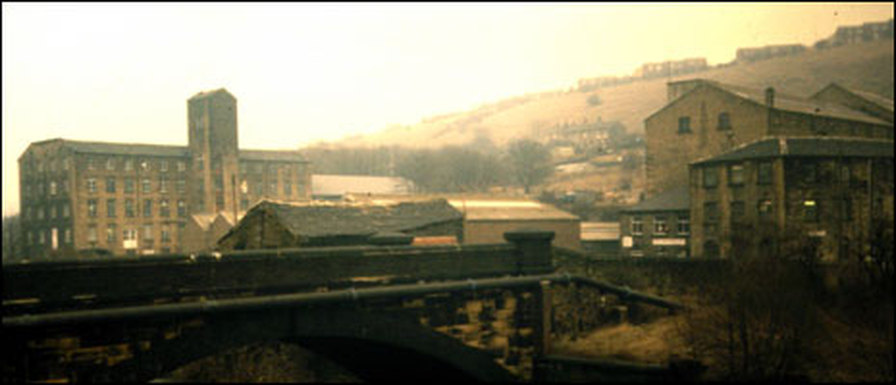
When Beth got off the boat in Liverpool, she headed for the area of West Yorkshire where she planned to settle and start anew. The year was 1964 and although it would have made more sense for her to make use of her prior work experience and obtain a job in a bakery, she was unable to obtain a daytime job and had no intentions of working through the night. Besides, there was better prospects to be had in textiles and mill work for a young woman in 1964 as opposed to taking up shop assistant work, office filing or typing.
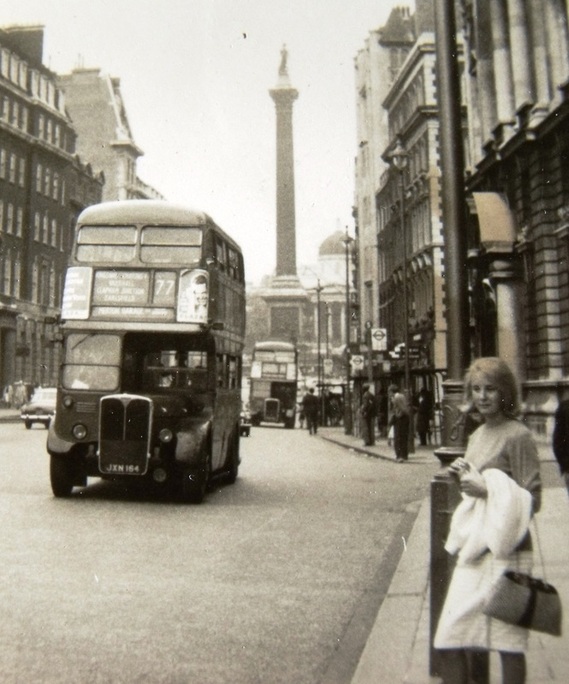
The early 1960s was a time when any worker in almost any trade or line of work was in demand. It was a time of plentiful jobs when it was possible to leave one's job during any hour of the day and to walk across the road and get set on that same day at another place of work without need of any references being taken up, before another bus passed by.
That was for men of course! Women were a much different species when it came to employment considerations within trade-union run mills and factories.
That was for men of course! Women were a much different species when it came to employment considerations within trade-union run mills and factories.
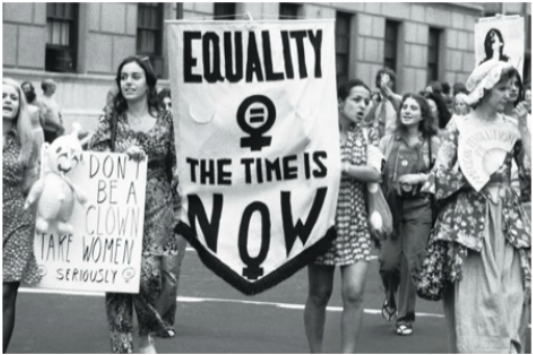
With regard to women however, getting another job was never as easy as their men folk found it, and were it ever discovered by a potential employer that a woman employee had been too radical in her ideas and too liberal with her tongue, they would avoid her like the plague.
No female agitator or advocate of 'equal rights' and 'parity between men and women doing the same type of jobs', would be tolerated by either master they worked under or male comrade they toiled alongside. Such women would find themselves 'blacklisted' and impossible to secure similar work without moving out of the neighbourhood.
No female agitator or advocate of 'equal rights' and 'parity between men and women doing the same type of jobs', would be tolerated by either master they worked under or male comrade they toiled alongside. Such women would find themselves 'blacklisted' and impossible to secure similar work without moving out of the neighbourhood.
When Beth decided to seek work in the mills of West Yorkshire, initially it was to buckle down to some hard graft and to get as much overtime in as she could with a view of saving as much money as was possible for her to save. Initially, she was prepared to keep her silence in respect of industrial matters she clearly disagreed with; matters and work practices that reinforced the inequality that existed between the male and female workers of any textile mill. However, the longer Beth worked in a mixed work force, the more she came to inwardly resent the disparity between male and female worker and the more she became determined to do something about it at a future date.
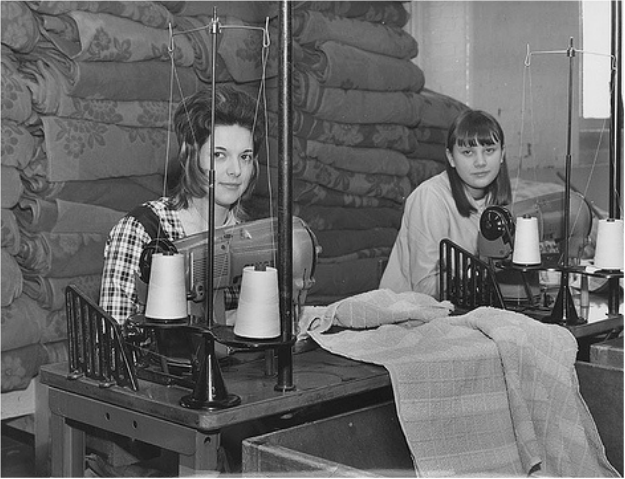
For the moment however, Beth seemed prepared to blend in with the rest of the mill women and to share their grievances and daily gripes as just another woman at work. Far better to tolerate this she thought than have to fend for some man at home and be tied to a hot stove and kitchen sink with three crying bairns around your ankles, tugging at your apron strings.
Beth seemed prepared to wait for change to come like the other women workers who worked alongside her for the time being; prepared to be just one more female worker who'd always been given the wrong end of the stick after it had been stirred in the shit pot. For the present, Beth was prepared to grasp this nettle of work inequality, providing it didn't detract from her being able to save up her money as quickly as she could, so that she might one day be able to buy her own little place to live.
Beth seemed prepared to wait for change to come like the other women workers who worked alongside her for the time being; prepared to be just one more female worker who'd always been given the wrong end of the stick after it had been stirred in the shit pot. For the present, Beth was prepared to grasp this nettle of work inequality, providing it didn't detract from her being able to save up her money as quickly as she could, so that she might one day be able to buy her own little place to live.
Whatever she thought to herself about the working conditions that separated man from woman in the mill, Beth knew that the time was still some way off before the male worker was prepared to be fair towards their female colleagues simply because 'they were women' or 'because it was the decent thing to do'.
She knew that despite the common boast of progress that was constantly being made in the press and media, such advancement referred to men and not women! Beth knew, as did every other woman in the land, that women were not considered as important or as necessary in the work force or to the economy of the nation as were men. She was also aware that most men in the land considered women working in mills and factories to be the prime risk to a man's job being taken from him because of the lower wages that could be paid to women workers for doing similar tasks.
She knew that despite the common boast of progress that was constantly being made in the press and media, such advancement referred to men and not women! Beth knew, as did every other woman in the land, that women were not considered as important or as necessary in the work force or to the economy of the nation as were men. She was also aware that most men in the land considered women working in mills and factories to be the prime risk to a man's job being taken from him because of the lower wages that could be paid to women workers for doing similar tasks.
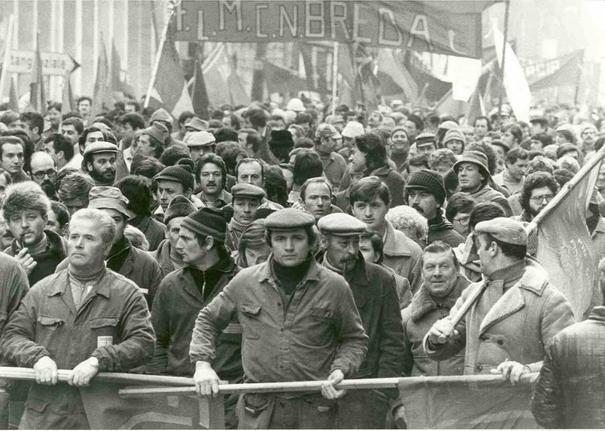
Indeed, during the 60s, the trade unions ruled the roost when it came to controlling both the nature and output of a person's daily labour, along with the wages the employers were demanded to pay unless they wanted to deal with the catastrophic effects of a wildcat strike. The most powerful person in any mill at that time wasn't the owner or mill manager, but the shop steward and what he said was invariably acted on by the whole workforce.
XXXXX
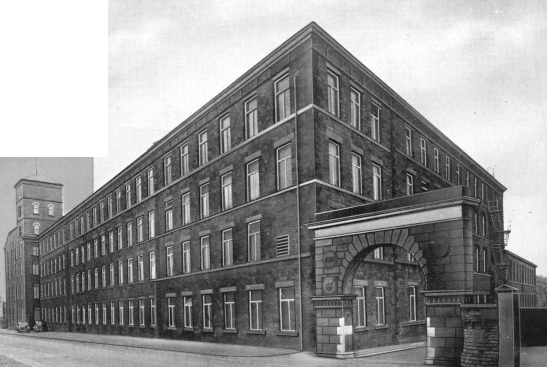
During the following year working at Dewhurst's Mill, Beth kept a relatively low profile and did all that was necessary not to be seen as a troublemaker. It took her a while for her to be accepted as 'one of the girls' by the other female workers in the mending room as her Irish accent clearly defined her as an immigrant who had taken the mill job of some other English female worker. This perception seemed to make the newcomer someone who would be prepared to work for less of a weekly wage than they were, if ever push came to shove.'
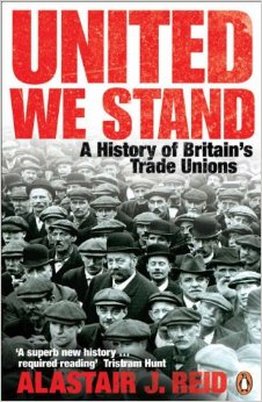
As her first year in the mill of Dewhurst's in Dewsbury came to its close, Beth had gradually found herself becoming more interested in the history of the Trade Union Movement as well as the advancement of the Labour Party in the heartland of the industrial north. She read as many books as she could upon the subject and within the space of a short while, she'd become as much an expert on the subject of the workers' movement as any other worker in her place of employment, whether they be man or woman, trade union shop steward or boss.
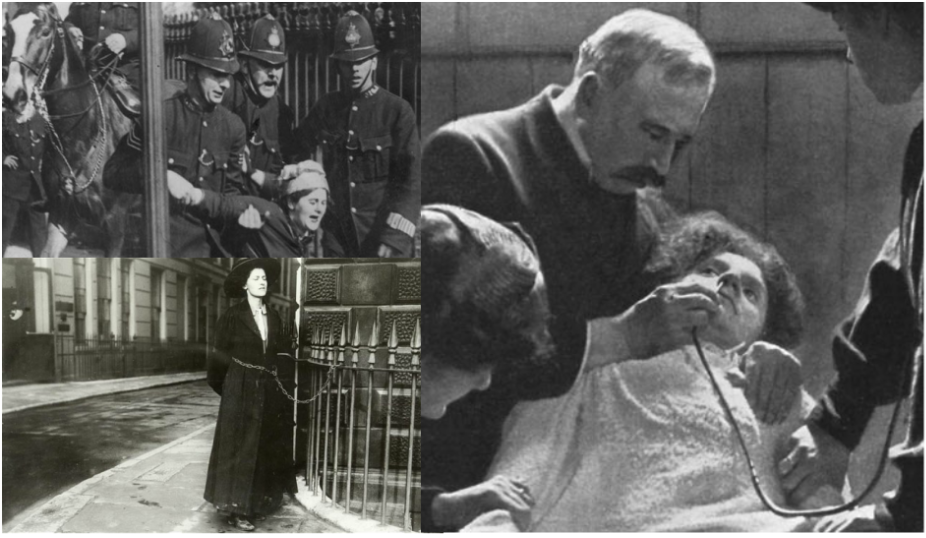
Beth slowly came to appreciate that the advancement of the trade union movement was very slow in Great Britain until the emergence of the Labour Movement and the early Socialist Party. Beth soon learned that only after the Labour Party came into full political being, did the trade union movement start to become the influential industrial force that it was to become in the 1960s. The two seemed to naturally go hand in hand and little did it surprise Beth to learn that however badly the trade unions treated its women work force today, these very same women would never in their wildest of dreams imagine voting for anyone else at the ballot box except Labour to protect and advance their interest.
It seemed that any advancement since the days of the suffragettes at the turn of the century had been painfully slow and she wondered if women would need to return to mass protest and have to chain themselves to railings and incur imprisonment and force feeding once more until full equality and parity between men and women in society and the workforce was ever achieved.
It seemed that any advancement since the days of the suffragettes at the turn of the century had been painfully slow and she wondered if women would need to return to mass protest and have to chain themselves to railings and incur imprisonment and force feeding once more until full equality and parity between men and women in society and the workforce was ever achieved.
XXXXX
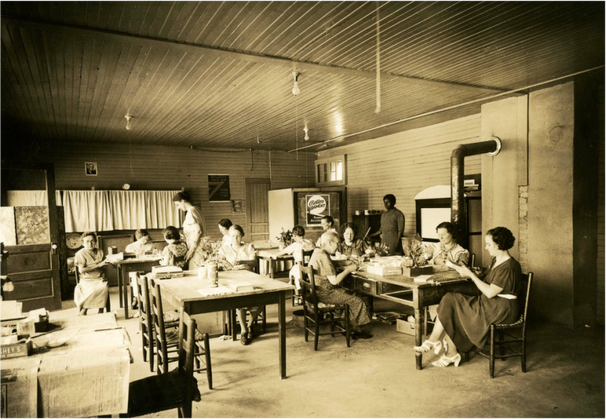
After one year at Dewhurst's, Beth obtained a job in the mending department of Harrison Gardner's of Hightown, Liversedge. This mill was handier for her in more ways than one. For starters, it paid Beth fifteen shillings and sixpence per week more than she earned at Dewhurst's for the same hours. Also, there was the opportunity of much more overtime if she wanted it and because the firm was owned by a father and two sons, once a worker was truly accepted into the 'family mill', while their loyalty was expected without question, once given it was well rewarded by the three Harrisons; Mr Frank, his oldest son, Mr John and the younger son, Mr David.
While all the workers at Harrison Gardner's felt their work place to be the best mill and dying works around where the highest wages were capable of being earned, each had grown to consider their role and working place in the firm as being theirs by right the longer they held it. Indeed, the firm was more family orientated than one might have imagined as virtually every job opening that became available was first offered to any prospective employee who already had a family member working there, whether it be father, mother, brother or sister. Hence it proved difficult for any 'outsider' ever to be equally considered for a job there, however good a worker they happened to be.
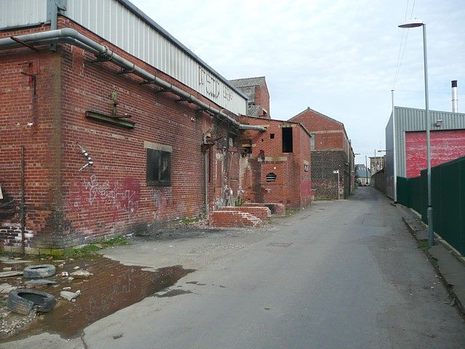
In many ways, the firm of Harrison Gardner's which had stood there for almost one hundred and fifty years was an enigma of the times. Whereas every other mill, textile factory and dye works around the whole of Yorkshire and Lancashire had witnessed its fair share of strikes over the years, since it was first opened by the Harrison family at the start of the 19th century, not one strike had ever taken place there. There had been one or two 'work to rule' protests between 1930 and 1960, but there had never been a strike.
Indeed, had prizes been given out to mill owners for having a peaceful, cooperative, happy and a strike-free workforce, the family owners of Harrison Gardner's of Hightown would have won the trophy hands down every time! Even the manner of address which they insisted on each time one of their employees spoke to or about them could have come straight out of the times of a few centuries earlier.

It was policy for every new employee to be set on by the oldest son, 'Mr John' of Harrison Gardner's and not some foreman or office secretary. Upon starting work on the very first morning, the new employee would be taken to the office of Mr John by the firm's shop steward, where they would be acquainted with their job specification and were then informed of the 'firm's expectations'.
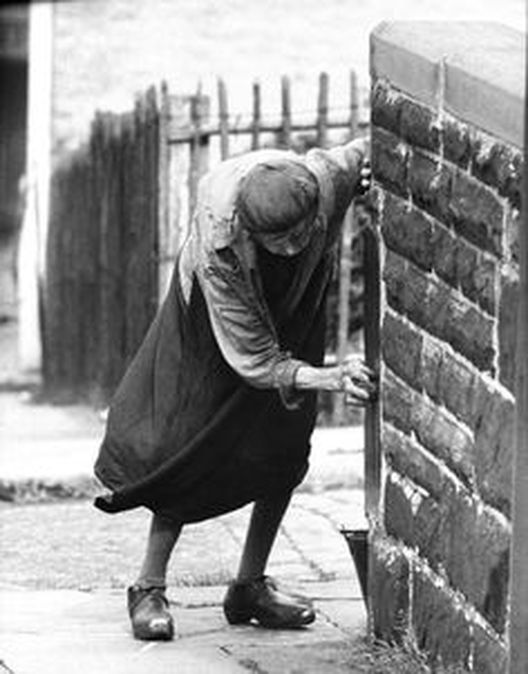
The process was always the same as was the firm's expectations laid down. He would look you square in the eye and say, "My name is John Harrison. I am the oldest son to my father, Mr Frank and the elder brother to Mr David. Whenever you have cause to speak to me or my brother in the future, you will refer to us as 'Mr John and Mr David' respectively. Naturally, my father is known as Mr Frank to you, but he hardly comes into the works these days and leaves the running of the firm to me. We start work at 6.45 prompt every morning and finish between 5.30 and 7pm, depending whether your department is required to work over. We do not tolerate late arrivers or slackers; indeed Milly Overden from the packing department has never been late in forty three years of service, despite her incapacity to walk unaided. If Milly can get here on time, then there's no excuse for the likes of you! Overtime is expected to be carried out whenever the orders demand it. All domestic tasks which cannot be carried out during your half hour lunch break will be carried out after work or during your weekend period. That is the way we work here..... we give and take, and in return you receive higher wages than any other textile firm in the Shire offers. If you happen to be a person who curses and swears, don't let me hear it and if you are ever found stealing any of the family's yarn you will be instantly prosecuted and sacked. If you have any day-to-day complaints, don't bother me or my family with them.... see your shop steward here and he'll sort it. He'll also inform you of the machine you'll be allocated to operate and tell of the piece work rate of pay assigned to that machine. Now, if there's no questions I'll bid you welcome to the firm and no doubt see you about from time to time."
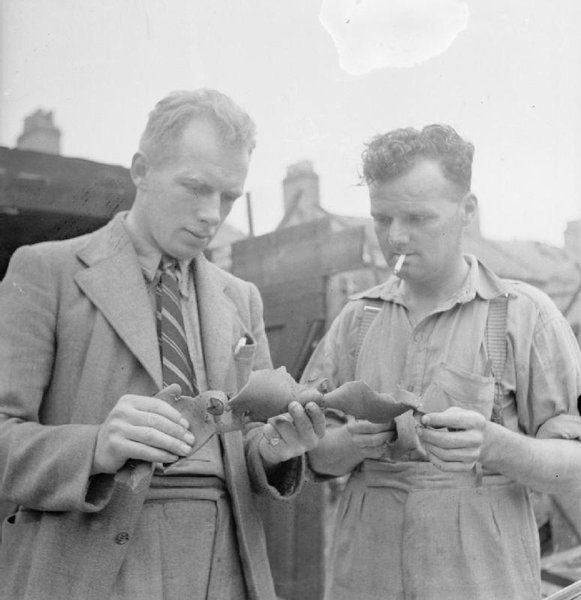
While Beth found the process strange of referring to her boss as though his Christian name was indeed his surname, she could see the psychological advantage in them having adopted this practice.
By inviting one's employee to be instantly more familiar in address than they would otherwise have been, the Harrison family was making the newcomer to their works feel instantly at home while reinforcing the distinction between master and worker.
Within a short space of time Beth was to discover that every man who worked at Harrison Gardner's over the age of twenty one received the same rate of pro rata pay irrespective to whatever task they performed, whichever machine they operated or however much that operative's machine earned on piece-work rate. Every pay day, each man received the same rate of pay in their weekly package as all their earnings were pooled and equally divided. Only the number of hours one man had worked in a week compared to another determined any difference in wages each received on a Thursday pay night.
By inviting one's employee to be instantly more familiar in address than they would otherwise have been, the Harrison family was making the newcomer to their works feel instantly at home while reinforcing the distinction between master and worker.
Within a short space of time Beth was to discover that every man who worked at Harrison Gardner's over the age of twenty one received the same rate of pro rata pay irrespective to whatever task they performed, whichever machine they operated or however much that operative's machine earned on piece-work rate. Every pay day, each man received the same rate of pay in their weekly package as all their earnings were pooled and equally divided. Only the number of hours one man had worked in a week compared to another determined any difference in wages each received on a Thursday pay night.
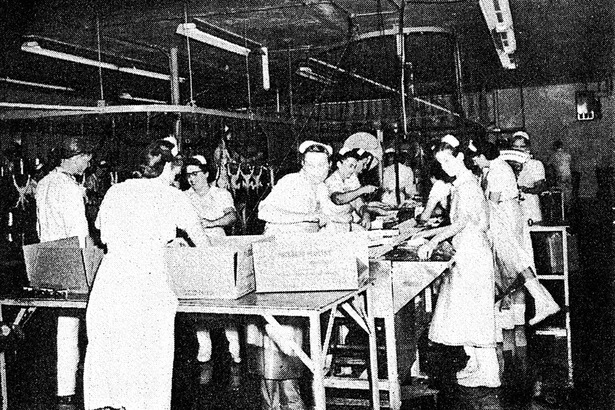
The women also operated the very same pooled system as did the male work force, with the exception that none of the heavy manual work was performed by them nor was any dying vat or heavy machine operated by them. Naturally, their rate of pay was set at two thirds of that of their male colleagues, but as they received more wages than any other woman textile worker in the county did, coupled with the fact that it was often their husbands, fathers or brothers whose weekly wages from Harrison Gardner's outstripped theirs, their protests were usually muffled and were confined to their sisterly whispers during their lunch break in the canteen!
With regard to trade union representation at Harrison Gardner's, the interests of the women workers was overseen by the one shop steward who served the whole three hundred workforce of both men and women.
With regard to trade union representation at Harrison Gardner's, the interests of the women workers was overseen by the one shop steward who served the whole three hundred workforce of both men and women.
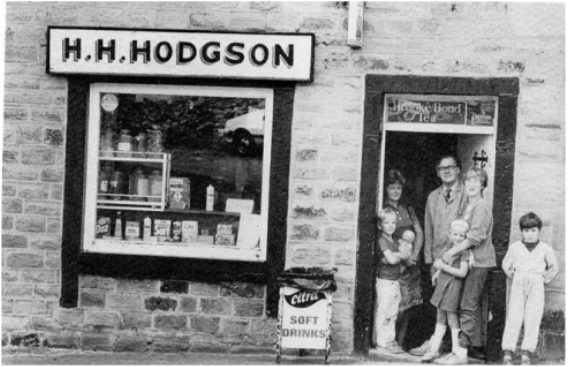
Every now and then, as happens in all walks of life, the worker will become overconfident in their task and start taking increased risk or shortcuts in order to minimise effort and maximise output. When this occurs, it is usually only a matter of time before mistakes happen and the worker comes a cropper! Harrison Gardner's way of dealing with such workers was to effectively demote them in their daily tasks. Hence, they might be asked to operate one of the easier machines that carried a higher number whenever they needed to be taken down a peg or two. Mr John would keep them on the higher-numbered vat until they had been publically retrained. This was the only way to prove oneself worthy again of getting their old machine back!They might also be asked to fetch the daily shop orders from the sandwich shop for the vat dyers at Harry Hodgeson's shop at the top of the ginnel.
XXXXX
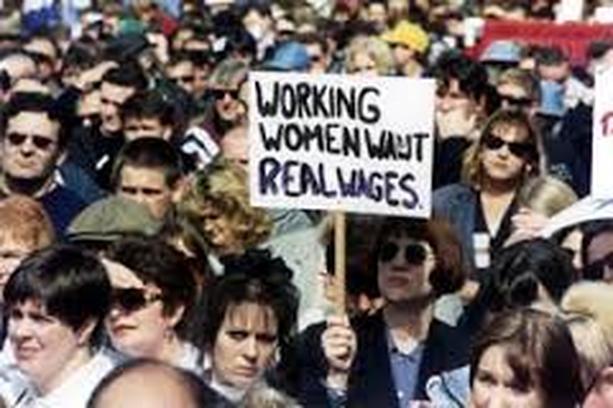
Beth stayed at Harrison Gardner's for the next ten years and during this time she was to advance to a position that no other woman in the mills of Yorkshire or Lancashire had ever previously held; that of being elected shop steward over the three hundred work force of men and women!
Beth's advancement up the trade union ladder had not been the easiest of accomplishments as she often seemed to be blocked for serious consideration of the shop steward's post every time it became vacant by the trade union district office of the 'Dyers and Bleachers Union.'
However good she was at communicating with her female work mates, whatever the force and persuasiveness of her argument on either 'doing this' or 'not doing that', without a higher rate of pay being awarded, nothing could disguise the fact that she was a woman and as such could not be seen to be a suitable shop steward over a male work force as well as that of her own sex. It mattered not that she was as well read about the Socialist cause or knew more about the history of the trade unions than any other trade union member. Unless she had chopped off her head of hair, bandaged tight her breasts and taken the identity of 'Bert Williams' instead of 'Beth Williams', she was never destined to become the shop steward of Harrison Gardner's without a struggle.
Beth's advancement up the trade union ladder had not been the easiest of accomplishments as she often seemed to be blocked for serious consideration of the shop steward's post every time it became vacant by the trade union district office of the 'Dyers and Bleachers Union.'
However good she was at communicating with her female work mates, whatever the force and persuasiveness of her argument on either 'doing this' or 'not doing that', without a higher rate of pay being awarded, nothing could disguise the fact that she was a woman and as such could not be seen to be a suitable shop steward over a male work force as well as that of her own sex. It mattered not that she was as well read about the Socialist cause or knew more about the history of the trade unions than any other trade union member. Unless she had chopped off her head of hair, bandaged tight her breasts and taken the identity of 'Bert Williams' instead of 'Beth Williams', she was never destined to become the shop steward of Harrison Gardner's without a struggle.
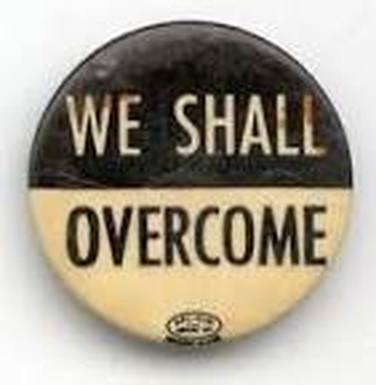
Beth knew that the trade union movement hadn't got where it was today without struggle or without fighting the prejudices of its age. She knew it had been the ability to bring about the combination of both minds and purpose before the body that eventually emerged became truly representative of the whole. She also knew that in this struggle, both patience and perseverance would eventually be rewarded in a just outcome!
XXXXX
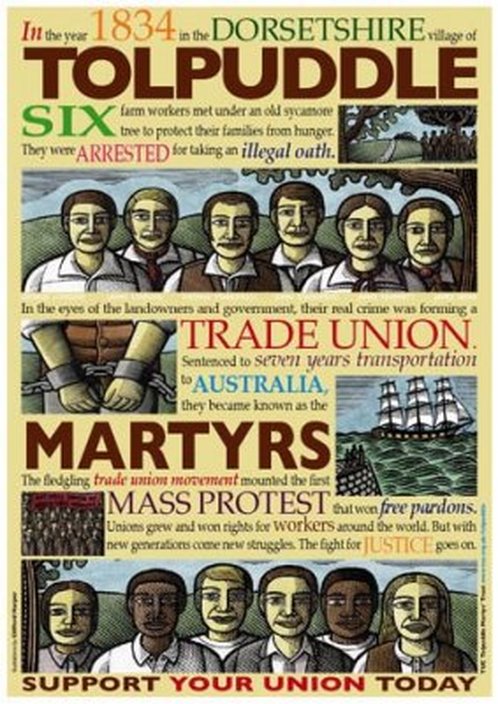
The origins of the trade union movement can be traced to the time of the industrial revolution, which transformed Britain in the 18th and 19th century from an agrarian and rural society to one which was based on industrial production in factories, textile mills and mines. The conditions in these new industries were often harsh, with men, women and even children forced to work long hours for very low wages. The workers did not accept these conditions passively and there were a number of trade disputes during the 18th century where workers came together to resolve one-off problems at work.
Initially the Masters held the whip hand and used all of their power and wealth to keep the workers in their place and to stop them strengthening their interests and combining their work power.The Combination Acts, passed in 1799 and 1800 made any kind of strike action illegal. Striking was punishable with up to three months' hard labour.
Following widespread protests, the Combination Acts were repealed in 1824 and 1825. But labour unrest reached new levels during the 1830s, and the government responded through draconian measures to prevent workers from getting together to form trade unions. In March 1834, six agricultural labourers who had formed a trade union in the Dorsetshire village of Tolpuddle were arrested and found guilty of 'administering illegal oaths' in what was a show trial. Their sentence of 'Transportation' to Australia for seven years led to a mass campaign, which eventually led to their sentences being dropped.
Initially the Masters held the whip hand and used all of their power and wealth to keep the workers in their place and to stop them strengthening their interests and combining their work power.The Combination Acts, passed in 1799 and 1800 made any kind of strike action illegal. Striking was punishable with up to three months' hard labour.
Following widespread protests, the Combination Acts were repealed in 1824 and 1825. But labour unrest reached new levels during the 1830s, and the government responded through draconian measures to prevent workers from getting together to form trade unions. In March 1834, six agricultural labourers who had formed a trade union in the Dorsetshire village of Tolpuddle were arrested and found guilty of 'administering illegal oaths' in what was a show trial. Their sentence of 'Transportation' to Australia for seven years led to a mass campaign, which eventually led to their sentences being dropped.
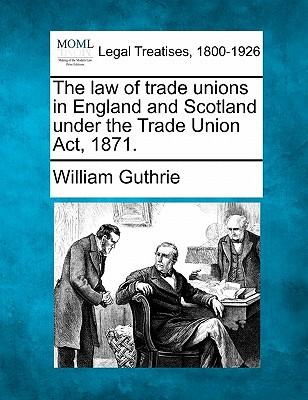
The 1871 Trade Union Act recognised unions as legal entities entitled to protection under the law. However, it was only in 1875 that it was legal for trade unions to take effective strike action by picketting their employer's works. By the 1880s, trade unions were active in the cotton, coal, iron, steel and engineering industries. Many trade unions later joined the Labour Representation Committee (LRC), which formed the basis for today's Labour Party.
Over the next century, the power of trade unionism increased and was essentially to prove inversely proportionate to the decreasing influence that owners were able to display over their workforce. Throughout this period when the trade unions increased their influence in the nation's workforce, women were never allowed to receive the degree of representation that they deserved. Although the number of women in trade unions had increased by 1914, 90% of all trade unionists were men. Trade unions supported the campaign for extending the vote to women, but on the whole, trade unions still tended to primarily represent the interests of their male members.
Trade Union membership continued to grow steadily during the 1950s and 1960s and although the influence of women in the nation's workforce was gradually increasing, it was still at a painfully slow rate. Within a ten year period of Beth becoming a textile worker, an unprecedented period of industrial action was about to unleash itself upon the factories, mills, docks, steel works and mines of the country, although women still remained second class citizens in the country's factories and mills.
Given the nature of the rebellious and determined woman Beth was fast becoming, her involvement in the trade union movement over the immediate years ahead seemed to be on the cards with the advancement of every year she spent in the firm of Harrison Gardner's.
Over the next century, the power of trade unionism increased and was essentially to prove inversely proportionate to the decreasing influence that owners were able to display over their workforce. Throughout this period when the trade unions increased their influence in the nation's workforce, women were never allowed to receive the degree of representation that they deserved. Although the number of women in trade unions had increased by 1914, 90% of all trade unionists were men. Trade unions supported the campaign for extending the vote to women, but on the whole, trade unions still tended to primarily represent the interests of their male members.
Trade Union membership continued to grow steadily during the 1950s and 1960s and although the influence of women in the nation's workforce was gradually increasing, it was still at a painfully slow rate. Within a ten year period of Beth becoming a textile worker, an unprecedented period of industrial action was about to unleash itself upon the factories, mills, docks, steel works and mines of the country, although women still remained second class citizens in the country's factories and mills.
Given the nature of the rebellious and determined woman Beth was fast becoming, her involvement in the trade union movement over the immediate years ahead seemed to be on the cards with the advancement of every year she spent in the firm of Harrison Gardner's.
XXXXX

Harrison Gardner's Mill proved to be a good starting off point for Beth in her move from Ellis' Mill in 1964. It was one of hundreds of mills and textile factories in a ten-mile radius that took in Dewsbury, Batley, Birstall, Heckmondwike, Mirfield, Brighouse, Huddersfield, Bradford and Halifax that processed all manner of textiles. In spite of being a much smaller place than nearby Huddersfield or Halifax with their own preponderance of mills and factories, Liversedge had since the start of the Industrial Revolution and the growth of Textiles served the capitals of the world in textile goods of wool, carpets and clothing garments. Indeed, any resident who lived and worked within a three-mile radius of Hightown, Heckmondwike and Dewsbury from the 19th century onwards could have proudly boasted that they lived and worked in the textile capital of the world.
Liversedge was the area in which the Luddites had made their stand against the mill masters of the day as they sought to protect their livelihoods, armed with hammers, pistols, pitch forks and other weaponry as they marched upon the modern machinery of their employers with a view of destroying it. While the machine breaking had spread to the cotton industry of Lancashire and Cheshire, it was however in West Yorkshire and the area where Beth now worked that the most disturbing and violent of the drama was played out.
Liversedge was the area in which the Luddites had made their stand against the mill masters of the day as they sought to protect their livelihoods, armed with hammers, pistols, pitch forks and other weaponry as they marched upon the modern machinery of their employers with a view of destroying it. While the machine breaking had spread to the cotton industry of Lancashire and Cheshire, it was however in West Yorkshire and the area where Beth now worked that the most disturbing and violent of the drama was played out.
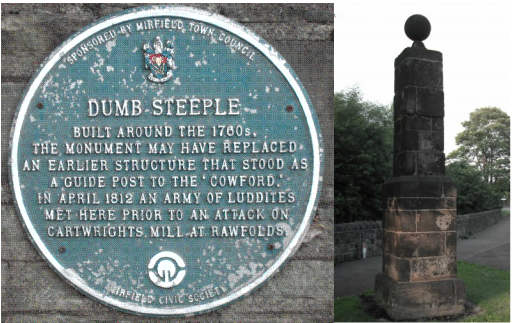
Indeed, in the evening of 1812, three miles away from the site of Harrison Gardner's, an army of Luddites met at Dumb Steeple in the area of Mirfield prior to an attack on Cartwright's Mill in Rawfolds.
Being an avid reader of history and the advancement of trade unionism and the Labour Party, Beth felt inside her that if improvement in the lot of the woman worker was to be brought to the fore of the nation's attention in the 1960s, then there was as much right for the movement to start from here where she now worked and from where the Luddites of the 19th century had marched with such conviction of purpose. After all she mused, what was the point of being mired in the blood of these textile martyrs unless their very souls and spirits that were still said to haunt the mills of their youth were able to stir the spirits of today's workers towards a more equitable workforce between man and woman?
Being an avid reader of history and the advancement of trade unionism and the Labour Party, Beth felt inside her that if improvement in the lot of the woman worker was to be brought to the fore of the nation's attention in the 1960s, then there was as much right for the movement to start from here where she now worked and from where the Luddites of the 19th century had marched with such conviction of purpose. After all she mused, what was the point of being mired in the blood of these textile martyrs unless their very souls and spirits that were still said to haunt the mills of their youth were able to stir the spirits of today's workers towards a more equitable workforce between man and woman?
